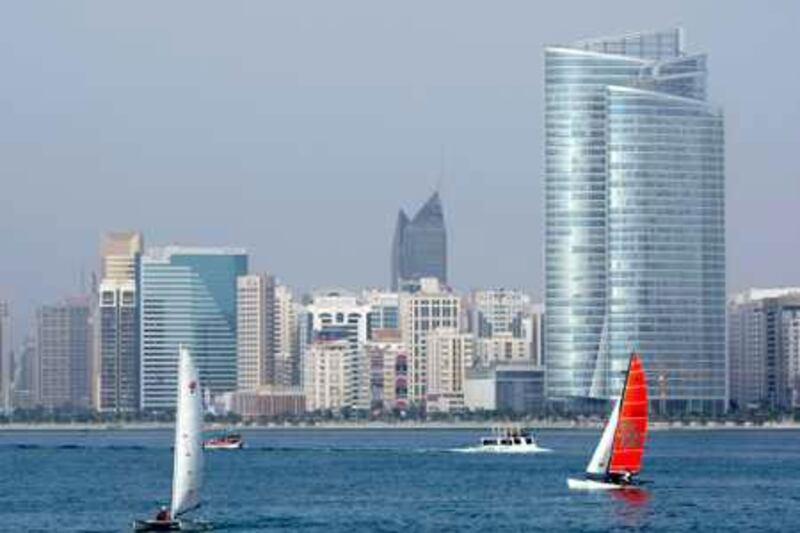Anyone who has set up a factory in Abu Dhabi has probably experienced the "grand tour" of government bureaucracy. Months of trips to different departments for a trade licence and land permit are followed by lengthy applications to the electric utility, the chamber of commerce, the environment agency and more. Now the Abu Dhabi Government is determined to improve its reputation among entrepreneurs by putting all those services under one roof.
The time taken to obtain an industrial licence has been cut from 90 days to 11, according to Rashed al Darmaki, a director at the Higher Corporation of Specialised Economic Zones (ZonesCorp), which has launched a new one-stop shop for setting up an industry. "Before, the information wasn't clear, the process was complicated and there were no clear roles and responsibilities," he said. "We have to make it easy. The investors should not come to Abu Dhabi and be surprised."
The new system was presented yesterday to Sheikh Hamed bin Zayed, the chairman of ZonesCorp, who noted that the body "plays a strategic role in the emirate's diversification efforts by increasing the industrial sector's contribution to GDP". ZonesCorp's refurbished administration building in Musaffah looks and feels like a luxury version of the Traffic and Licensing Department. Entrepreneurs take a number and sit on plush couches with customer service agents, who review their application and walk them through each step of the process.
The body, which fulfils a dual role of regulator and investor in some businesses, promises to provide an initial answer to an application within 24 hours, and inform applicants about the availability of land within seven days. "The complete cycle does not surpass 10 or 11 working days," Mr al Darmaki said. The new approval process was unveiled a day after the World Bank lifted the UAE's ranking in its annual Doing Business Report, which measures the ease with which an entrepreneur can start, operate and close a firm. The UAE rose from 46th to 33rd in the world rankings.
The country was credited with being one of the world's most active reformers in a number of areas including starting a business, obtaining construction permits and trading across international borders. But the ranking was held back by the difficulty businesses face in shutting down, largely due to inadequate insolvency laws, the World Bank's International Finance Corporation said. Mr al Darmaki said the Government was determined to improve its ranking, and the reforms at ZonesCorp played into that goal.
"This will improve our rating, if we have a transparent process and requirements," he said. Referring to last year's rankings, he added: "You're surprised when you see Saudi at 16 and we are at number 46: we should be more open and investor orientated." This year, Saudi Arabia was ranked first in the region and 13th overall. Reforms to the regulatory process at ZonesCorp were a good first step, but the Government needed to do more to encourage the growth of small and medium-sized industry in Abu Dhabi, said Gary Whabi, who founded the Indian Business Group in Abu Dhabi and has been involved in the emirate's industrial sector for more than 30 years.
Entrepreneurs were reluctant to set up medium-sized factories in Musaffah because finance was out of reach or too expensive, land was difficult to obtain and businesses faced difficulty obtaining connections to power and water, he said. "This one-stop shop is fantastic, but it needs to be implemented in a proper manner where land, water, finance and electricity are all available," Mr Whabi said. Mr al Darmaki said ZonesCorp was about 60 to 70 per cent complete in implementing the new licensing process, but it would take time to change the culture of regulation. "It's not easy to come and change the culture in five months," he said. "You need time to let people understand why they need to change, why they need to go through new processes."
@Email:cstanton@thenational.ae





